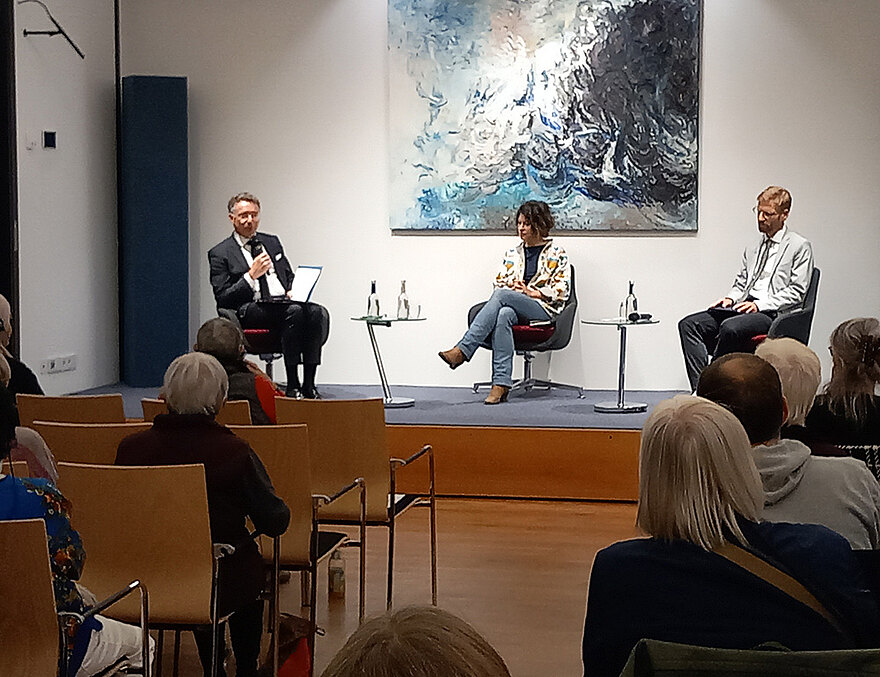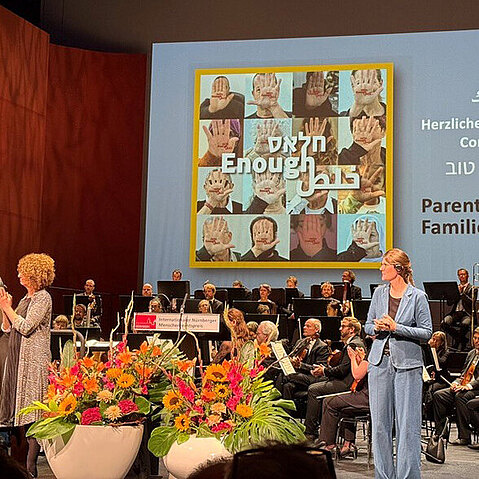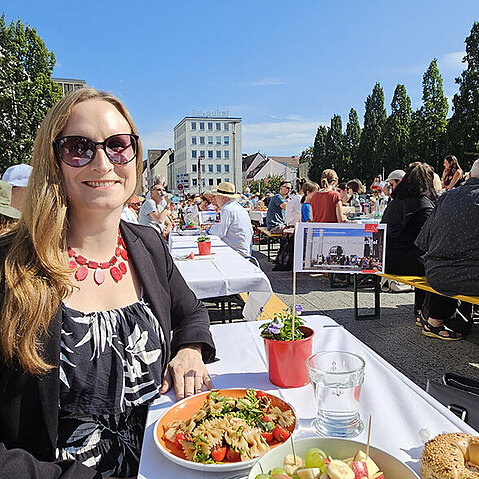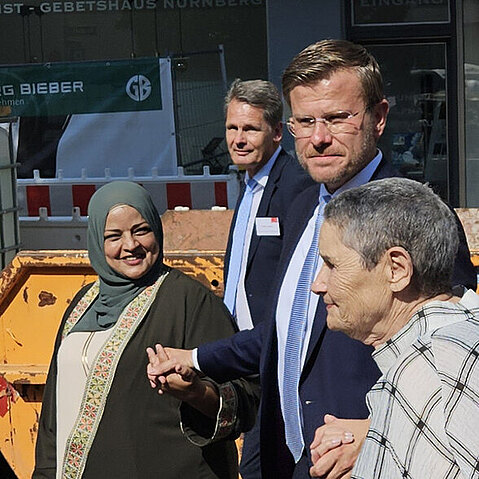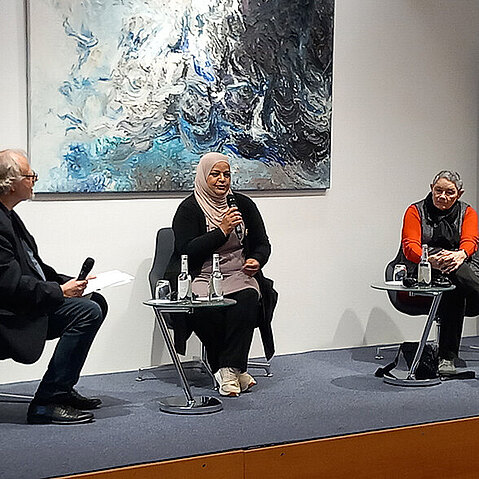As part of Nuremberg’s network of institutions dedicated to human rights and international criminal law, we contributed to this year’s International Nuremberg Human Rights Award. In 2025, the award went to the Israeli-Palestinian reconciliation initiative Parents Circle – Families Forum (PCFF), which since 1995 has brought together families from both sides who have lost loved ones in the ongoing conflict. In Nuremberg, the organisation was represented by Laila AlSheikh and Robi Damelin.
In addition to the official award ceremony on 21 September at the Opera House, the Academy also hosted its own table at the Nuremberg Peace Banquet. This civic festival in the Nuremberg city centre, the largest such peace banquet in Germany, honours the laureates and, through a shared meal, sends a strong message of peace, respect and human dignity. The Nuremberg Human Rights Award was launched in 1995 and is awarded every two years. As in previous years, Deputy Director Dr Viviane Dittrich took part in both the award ceremony and the Nuremberg Peace Banquet.
On 23 September, under the title “Enough”, the laureates shared their personal stories at the Caritas Pirckheimer House, speaking about their daily work for reconciliation as well as the hostility they face within their societies. The talk was moderated by Professor Dr Heiner Bielefeldt, Friedrich-Alexander-Universität Erlangen-Nürnberg (FAU).
Afterwards, together with FAU and the Nuremberg Human Rights Office, the Academy organised the panel discussion “The Middle East Conflict – Perspectives”. Moderated by Academy Director Professor Dr Christoph Safferling, journalist Hanna Resch, ARD Studio Tel Aviv, and political scientist Professor Dr Thomas Demmelhuber, FAU, explored the current situation in the region. Their debate focused on political, legal and humanitarian challenges, as well as the difficult question of what prospects for peace and understanding remain.
The discussion highlighted some of the core challenges: growing regionalisation and the risk of an escalating spiral of violence, the increasing dehumanisation of “the other”, and the absence of social spaces for dialogue. And yet, the panellists noted that organisations such as PCFF continue to provide hope, working tirelessly for dialogue and reconciliation despite trauma, grief and mistrust. Concrete pathways to peace remained difficult to identify, but there was hope that external pressure from other states could help bring about a ceasefire and create the conditions for future solutions.
At the close of the evening, Professor Safferling affirmed the Academy’s commitment to supporting the laureates and their work: “We will do everything we can to strengthen your efforts”. (em/vd)

